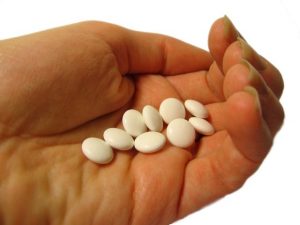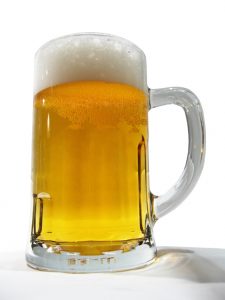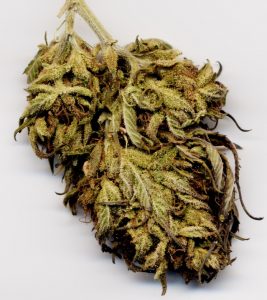DEA Chief Woefully Unaware of Medical Marijuana Facts
We want to be able to trust our leaders to make the best decisions for our society. It’s difficult, though, when they  demonstrate time and time again that they are not working with all of the facts, particularly when it comes to marijuana. Take Robert Patterson, chief of the Drug Enforcement Agency. He recently gave testimony during a hearing before the House Judiciary Committee on the opioid abuse crisis. The topic of medical marijuana came up frequently, yet Patterson was embarrassingly unprepared to discuss cannabis and its ability to help free people from opioid addictions. In fact, he didn’t seem to have much of a grasp on information about marijuana in general, according to a report Dispensaries.com.
demonstrate time and time again that they are not working with all of the facts, particularly when it comes to marijuana. Take Robert Patterson, chief of the Drug Enforcement Agency. He recently gave testimony during a hearing before the House Judiciary Committee on the opioid abuse crisis. The topic of medical marijuana came up frequently, yet Patterson was embarrassingly unprepared to discuss cannabis and its ability to help free people from opioid addictions. In fact, he didn’t seem to have much of a grasp on information about marijuana in general, according to a report Dispensaries.com.
The committee is rightfully concerned about opioids. According to the committee chairman during the hearing, almost a third of drug overdoses in the United States in 2016 were from synthetic opioids, at more than 20,000 deaths. He went on to say that in 2018 more than 2 million people will suffer from opioid addiction, whether obtained by prescription or illicit means. Studies and anecdotal evidence are growing that show cannabis is an effective replacement for opioid prescriptions and, therefore, ultimately could prevent overdoses. However, Patterson claimed to be unaware of these studies, a rather shocking statement for the top drug enforcement official in the country. Continue reading
 Cannabis Law Group's Medical Marijuana Legal Blog
Cannabis Law Group's Medical Marijuana Legal Blog





 marijuana for research: University of Mississippi. This is in spite of a 2016 decision to allow DEA to approve medical marijuana manufacturers for research purposes and dozens of applications to join the pool, according to a
marijuana for research: University of Mississippi. This is in spite of a 2016 decision to allow DEA to approve medical marijuana manufacturers for research purposes and dozens of applications to join the pool, according to a  treatments. University of Utah is planning a $740,000, two-year study on how marijuana affects the brain and why it affects some people differently. UC San Diego, meanwhile, received a cool $4.7 million to research the effects of cannabidiol (CBD) in the treatment of autism. The university said it is the largest private donation for medical cannabis research in U.S. history, according to
treatments. University of Utah is planning a $740,000, two-year study on how marijuana affects the brain and why it affects some people differently. UC San Diego, meanwhile, received a cool $4.7 million to research the effects of cannabidiol (CBD) in the treatment of autism. The university said it is the largest private donation for medical cannabis research in U.S. history, according to  continue to disrupt that industry for the foreseeable future.
continue to disrupt that industry for the foreseeable future. data than ever on its potential uses and benefits. With the stigma dissipating and access increased, people are more freely sharing their personal stories surrounding this life-changing plant. These anecdotes are important evidence in the fight to legalize marijuana nationwide.
data than ever on its potential uses and benefits. With the stigma dissipating and access increased, people are more freely sharing their personal stories surrounding this life-changing plant. These anecdotes are important evidence in the fight to legalize marijuana nationwide. when those same veterans seek help ease the mental and physical pain they endure as a result of fighting for our freedoms, their pleas often fall on deaf ears. That’s why many veterans find themselves standing up and fighting once again, this time in a battle for their own lives in the ongoing war over medical marijuana.
when those same veterans seek help ease the mental and physical pain they endure as a result of fighting for our freedoms, their pleas often fall on deaf ears. That’s why many veterans find themselves standing up and fighting once again, this time in a battle for their own lives in the ongoing war over medical marijuana. catching up to what California and our trusted attorneys have known for a long time: That marijuana is a safe and effective treatment for many illnesses and ailments. So safe, in fact, that laws are expanding to open up marijuana for recreational consumption as well, with California implementing
catching up to what California and our trusted attorneys have known for a long time: That marijuana is a safe and effective treatment for many illnesses and ailments. So safe, in fact, that laws are expanding to open up marijuana for recreational consumption as well, with California implementing  children who benefit from it, there comes a question of who is really being protected.
children who benefit from it, there comes a question of who is really being protected. bill that would prevent employers from discriminating against employees because they use cannabis for medical purposes was recently introduced by Assemblyman Rob Bonta (D-Oakland), according to
bill that would prevent employers from discriminating against employees because they use cannabis for medical purposes was recently introduced by Assemblyman Rob Bonta (D-Oakland), according to  harm, and … are continually threatened with additional harm” as a result of marijuana’s Schedule I classification under
harm, and … are continually threatened with additional harm” as a result of marijuana’s Schedule I classification under